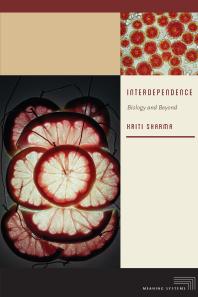

This extended tutorial will walk you through the key elements of WHAT scientific literature is, HOW it is created, produced, and shared, WHEN to use certain types of scientific literature, WHERE to find peer-reviewed and scholarly scientific literature, and even HOW to browse abstracts, interpret scientific articles, use data and results, and CITE carefully the information you learn from!!! Provided by the University of California - Los Angeles, if you are logged into WSU or myWSU, it will link you to the relevant databases at WSU Libraries - if not, just search for the databases through WSU Libraries Electronic Databases link, or find the appropriate links in the "Find Articles" page of this Library Research Guide. Remember - if you have questions contact your librarian - Nathan Filbert (info below), or contact a research services librarian at WSU!
SIMPLY CLICK THE IMAGE TO BEGIN!
Welcome to the Subject Guide for Biological Sciences. Please use these selected resources to aid you in your assignments, research projects, and further study of this subject area. Biological sciences include biology, botany, zoology, genetics, anatomy, ecology, and environmental science.
Check out this great resource for tracking Science News Headlines from Penn State University!
and Retraction Watch: Tracking retractions as a window into the scientific process
Related Library Research Guides:
If science is neither cookery, nor angelic virtuosity, then what is it?
Modern societies have tended to take science for granted as a way of knowing, ordering and controlling the world. Everything was subject to science, but science itself largely escaped scrutiny. This situation has changed dramatically in recent years. Historians, sociologists, philosophers and sometimes scientists themselves have begun to ask fundamental questions about how the institution of science is structured and how it knows what it knows. David Cayley talks to some of the leading lights of this new field of study.
 Interdependence : biology and beyond
by
Kriti Sharma
Interdependence : biology and beyond
by
Kriti Sharma
 Laboratory Life
by
Bruno Latour; Steve Woolgar; Jonas Salk (Introduction by)
Laboratory Life
by
Bruno Latour; Steve Woolgar; Jonas Salk (Introduction by)



